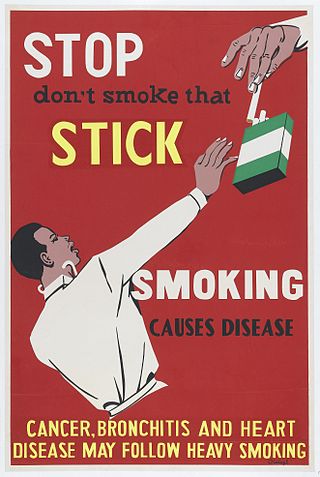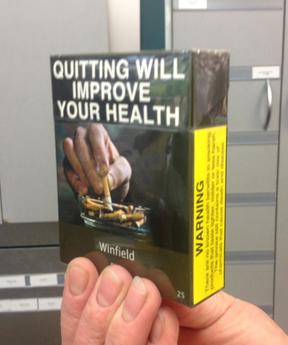Health Canada is the department of the Government of Canada responsible for national health policy. The department itself is also responsible for numerous federal health-related agencies, including the Canadian Food Inspection Agency (CFIA) and the Public Health Agency of Canada (PHAC), among others. These organizations help to ensure compliance with federal law in a variety of healthcare, agricultural, and pharmaceutical activities. This responsibility also involves extensive collaboration with various other federal- and provincial-level organizations in order to ensure the safety of food, health, and pharmaceutical products—including the regulation of health research and pharmaceutical manufacturing/testing facilities.

Markos Kyprianou is a Cypriot politician who served as Minister of Foreign Affairs until his official resignation on 19 July 2011, following the events of the Evangelos Florakis Naval Base explosion. A member of the Democratic Party, he was previously Cyprus's Minister of Finance from 2003 to 2004 and a European Commissioner from 2004 to 2008. He tendered his resignation as Commissioner on 29 February 2008 to become Foreign Minister in the government of President Dimitris Christofias; the resignation took effect on 3 March 2008, when his successor, Androulla Vassiliou, was confirmed as Commissioner.
The Consumers, Health, Agriculture and Food Executive Agency (Chafea) was an executive agency of the European Union, set up by the European Commission to manage four programmes on its behalf, in the domains of health, consumer protection, food safety, and the promotion of European agricultural products. From April 2021 on, these programmes were reassigned to other agencies, most notably the newly created Health and Digital Executive Agency (HaDEA).
Michael Pertschuk was an American attorney and advocate for consumer protection and public health. He served as a member of the Federal Trade Commission (FTC) from 1977 to 1984, and served as FTC Chair from 1977 to 1981. During his tenure, Pertschuk worked to strengthen the FTC's consumer protection powers.
The loi Évin is the French alcohol and tobacco policy law passed in 1991. It takes its name from Claude Évin, then Minister of Health, who proposed it to Parliament.

The European Directorate for the Quality of Medicines & HealthCare (EDQM) is a Directorate and partial agreement of the Council of Europe that traces its origins and statutes to the Convention on the Elaboration of a European Pharmacopoeia.
The Commissioner for Environment, Oceans and Fisheries is a member of the European Commission. The current Commissioner is Virginijus Sinkevičius, who also serves as EU Commissioner for the Environment.

The Commissioner for Justice is a post in the European Commission. The portfolios of Justice and Equality were previously combined as Commissioner for Justice, Consumers and Gender Equality under commissioner is Věra Jourová; however, the two portfolios were split in 2019. Didier Reynders currently serves as Justice Commissioner and Helena Dalli serves as Equality Commissioner.

Healthcare in Europe is provided through a wide range of different systems run at individual national levels. Most European countries have a system of tightly regulated, competing private health insurance companies, with government subsidies available for citizens who cannot afford coverage. Many European countries offer their citizens a European Health Insurance Card which, on a reciprocal basis, provides insurance for emergency medical treatment insurance when visiting other participating European countries.
The Directorate-General for Health and Food Safety, until 2014 known as the Directorate-General for Health and Consumers, is a directorate-general of the European Commission. The DG is responsible for the monitoring and implementation of European Union policies and laws on health and food safety. It is headed by European Commissioner for Health and Food Safety Stella Kyriakides and Director-General Sandra Gallina.

Regulation of tobacco by the U.S. Food and Drug Administration began in 2009 with the passage of the Family Smoking Prevention and Tobacco Control Act by the United States Congress. With this statute, the Food and Drug Administration (FDA) was given the ability to regulate tobacco products.

Smoking in Nigeria is prohibited in public places. It is punishable by a fine of not less than 50,000 nor exceeding 100,000.00 naira, or by imprisonment to a term of not less than 10 years or your lifetime, or by both a fine and imprisonment.
Smoking in Ireland is banned fully in the general workplace, enclosed public places, restaurants, bars, education facilities, healthcare facilities and public transport. However, it is permitted in designated hotel rooms and there is no ban in residential care, prisons and in outdoor areas. Public opinion is in favour of the bans on smoking which are in place in Ireland.

In Finland, the smoking figures are among the lowest in Europe. There are several factors that have influenced the decrease in the smoking prevalence, such as legislative actions, health promotion and national monitoring systems, policies aimed at reducing tobacco consumption through public awareness campaigns, advertising bans and increased taxation. Ministry of Social Affairs and Health has the leading role in tobacco control in Finland, and one of their main aims is have a more effective ban on sale of tobacco products to children and young people and to prevent sale of illegal tobacco products. Among the key elements in the successful tobacco policy is the traditional collaboration between the health authorities and non-governmental organisations, and intensive health promotion.

Smoking in Iceland is banned in restaurants, cafés, bars and night clubs as of June 2007. A large majority of Icelanders approve of the ban. At the time the ban went into effect, almost one in four Icelandic people were smokers.

Plain tobacco packaging, also known as generic, neutral, standardised or homogeneous packaging, is packaging of tobacco products, typically cigarettes, without any branding, including only the brand name in a mandated size, font and place on the pack, in addition to the health warnings and any other legally mandated information such as toxic constituents and tax-paid stamps. The appearance of all tobacco packs is standardised, including the colour of the pack.

Cigarette packets in Australia have undergone significant changes. Since 1 December 2012, all forms of branding logos, colours, and promotional texts are banned from cigarette pack designs. In turn they were replaced with drab dark brown packets and graphic images of smoking-related images to try to reduce the smoking population of Australia to 10% by 2018 from 15% in 2012.
The Tobacco Products Directive (TPD) or European Tobacco Products Directive (EUTPD) (2014/40/EU) is a directive of the European Union which places limits on the sale and merchandising of tobacco and tobacco related products in the EU. The TPD aims to improve the functioning of the internal market for tobacco and related products, while ensuring a high level of health protection for European citizens. Based on the proposal of the European Commission the Directive entered into force on 19 May 2014 and became applicable in the EU Member States on 20 May 2016.

As nicotine is highly addictive, marketing nicotine-containing products is regulated in most jurisdictions. Regulations include bans and regulation of certain types of advertising, and requirements for counter-advertising of facts generally not included in ads. Regulation is circumvented using less-regulated media, such as Facebook, less-regulated nicotine delivery products, such as e-cigarettes, and less-regulated ad types, such as industry ads which claim to discourage nicotine addiction but seem, according to independent studies, to promote teen nicotine use.


























